Christian Overton: Chasing That Euphoric Feeling
By Susan Frances
 Canadian jazz is not a term often used by music journalists, but trombonist and composer Christian Overton illustrates openly that Canadian jazz is just as real as American jazz, Latin jazz, Afro-Cuban jazz, or Britpop. And why not? Canada’s jazz musicians do not belong in another culture’s cube. They have their own niche of musicians, composers, trends, traditions, and couture. The Christian Overton Quintet, which Overton leads, shows the world that Canadian artists too create art native to their upbringing and fostered in their environment.
Canadian jazz is not a term often used by music journalists, but trombonist and composer Christian Overton illustrates openly that Canadian jazz is just as real as American jazz, Latin jazz, Afro-Cuban jazz, or Britpop. And why not? Canada’s jazz musicians do not belong in another culture’s cube. They have their own niche of musicians, composers, trends, traditions, and couture. The Christian Overton Quintet, which Overton leads, shows the world that Canadian artists too create art native to their upbringing and fostered in their environment.
“It’s a euphoric feeling that we all chase as musicians every time we play,” he applauds as he details how he was introduced to playing the trombone and influenced by mentors rooted in Canada’s soil.
“I started on the horn in Grade 6 in music class,” he recollects. “My older brother played trombone as well and taught me a few things, so I figured I’d be ahead of the class. I was very fortunate to have attended elementary and high schools in Sudbury, Ontario, with well-nurtured music programs. Teachers would even lend us recordings to listen to of players they thought we’d be interested in on our instrument.”
“I was immediately attracted to the virtuosity of the musicians in jazz music,” he observes, “and they looked like they were having so much fun. I borrowed a ton of records and started buying my own once I had a part-time job in high school. I was hooked on music for life!”
He vouches, “I was taking classical trombone lessons all through high school but had a passion for jazz.”
“My Dad,” he shares, “was and is a fan of many styles of music, so my ears, we’re hipped to a lot of different genres growing up. Sudbury has some great jazz musicians who I was thrilled to be able to see live many times. They were always very encouraging and let us young musicians sit in and even open for them on occasion with our own groups.”
“It was that acceptance and camaraderie,” he perceives, “which cemented my decision to be a musician. I wanted to be like them. Guys like Tony Simpkin, Brian Quebec, Al Walsh, and Jack Broumpton are still playing great in Sudbury today, keeping the scene vibrant.”
“Trombone wise,” he determines, “it was really Al Kay and Kelsley Grant who pointed me in the right direction through my studies, but when I started working professionally in the Toronto scene, I got to play with many of the city’s greats like William Carn, Terry Promane, and Rob Somerville, who I really feel are mentors to me even to this day.”
Overton continued to pursue learning and playing music when he attended Canada’s Humber College. He recalls about that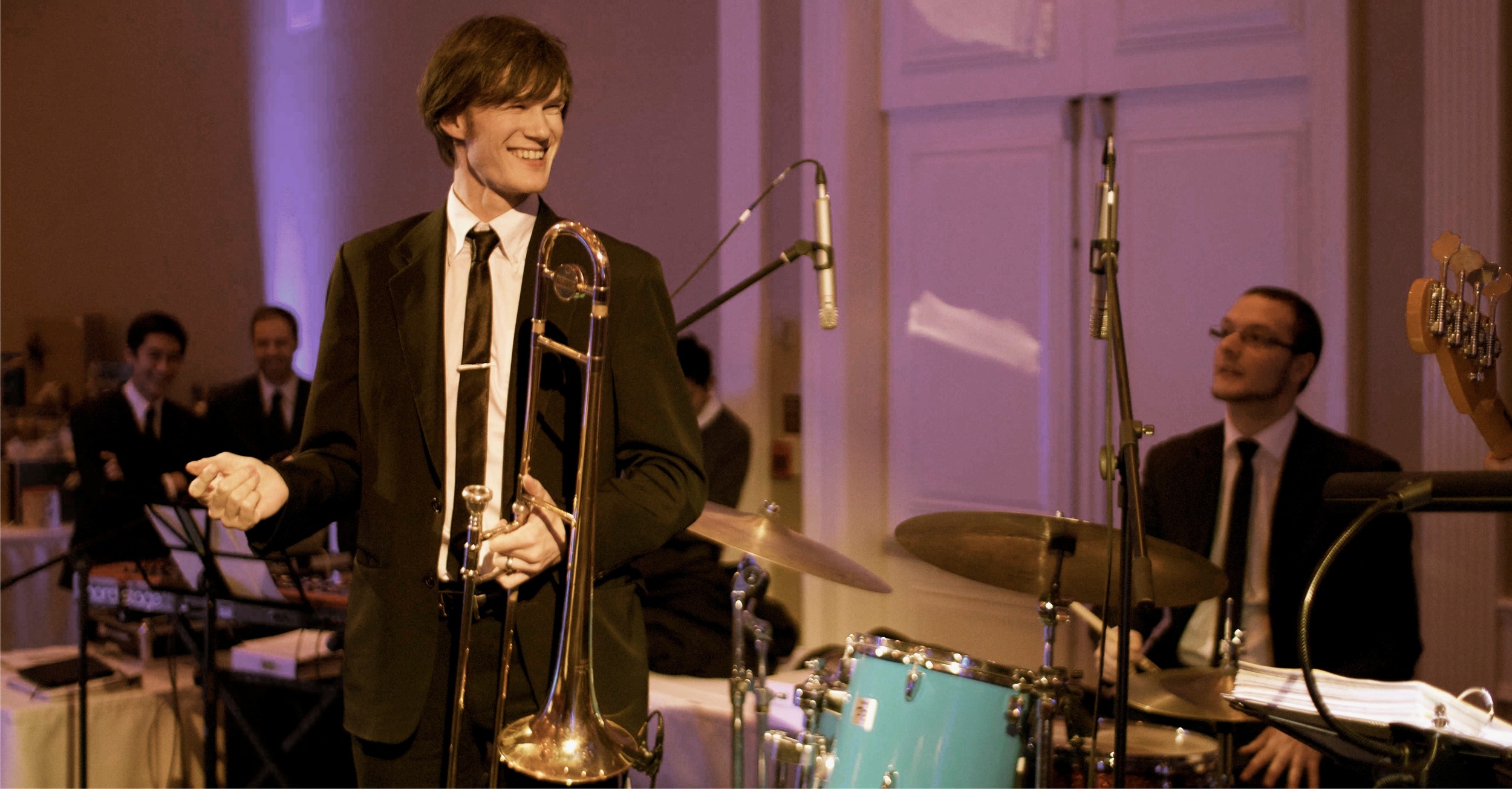 experience, “The trombone professor at Humber at the time was Al Kay. He played both classical and jazz styles at the highest level, so I wanted to study with him. I remember him saying in my audition, ‘if you want to be a musician, you go to Humber. It’s been that way for 30 years.’ I was sold!”
experience, “The trombone professor at Humber at the time was Al Kay. He played both classical and jazz styles at the highest level, so I wanted to study with him. I remember him saying in my audition, ‘if you want to be a musician, you go to Humber. It’s been that way for 30 years.’ I was sold!”
He describes, “Teaching versatility was really the name of the game at Humber. I was in Latin and pop ensembles as well as classical and jazz groups. The goal was really to make you into a well-rounded, very ‘hireable’ musician, which was invaluable once I graduated.”
“Other than learning from some of Canada’s finest players at Humber,” he notes, “and later at the University of Toronto where I did a masters degree, I found that the connections with my fellow students really helped me get started in the scene. Even to this day, I can probably trace every gig I’ve been called for back to a connection I made from school,” he declares.
His quintet is included in his proclamation that Humber offered him valuable connections. He reveals how he met the members of his quintet: Shirantha Beddage on baritone sax, alto sax, and bass clarinet, Todd Pentney on piano, Justin Gray on bass, and Morgan Childs on drums.
“There’s no question that this collective of musicians is amongst the best in Toronto,” he submits. “I met them all in different ways. Shirantha, who’s also from Northern Ontario, I met when in a youth all-star band at 16 years old. He was playing great even back then!”
“Todd and Justin,” he continues, “I met while at Humber and have played with in many other projects before starting my own group. They both have like minds when it comes to making music. “
“Morgan,” he highlights, “I had been a fan of for years before asking him to play with me. He’s always killing it night after night with so many bands around town. I love his sound and approach to the music.”
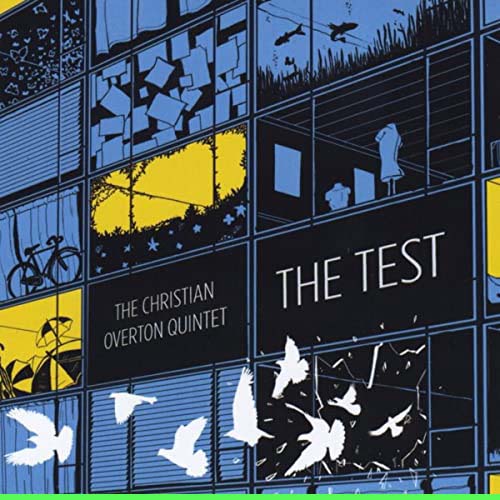 The quintet’s first outing, The Test, is a testament to their inclination to be improvisers. The exchanges are dynamic, moving in a continuous state of flux. Their instrumentation travels in scrambling patterns, flashing, flickering, and jutting with an impromptu penmanship. Listeners watch from the sidelines as the quintet communicates energetically and spontaneously.
The quintet’s first outing, The Test, is a testament to their inclination to be improvisers. The exchanges are dynamic, moving in a continuous state of flux. Their instrumentation travels in scrambling patterns, flashing, flickering, and jutting with an impromptu penmanship. Listeners watch from the sidelines as the quintet communicates energetically and spontaneously.
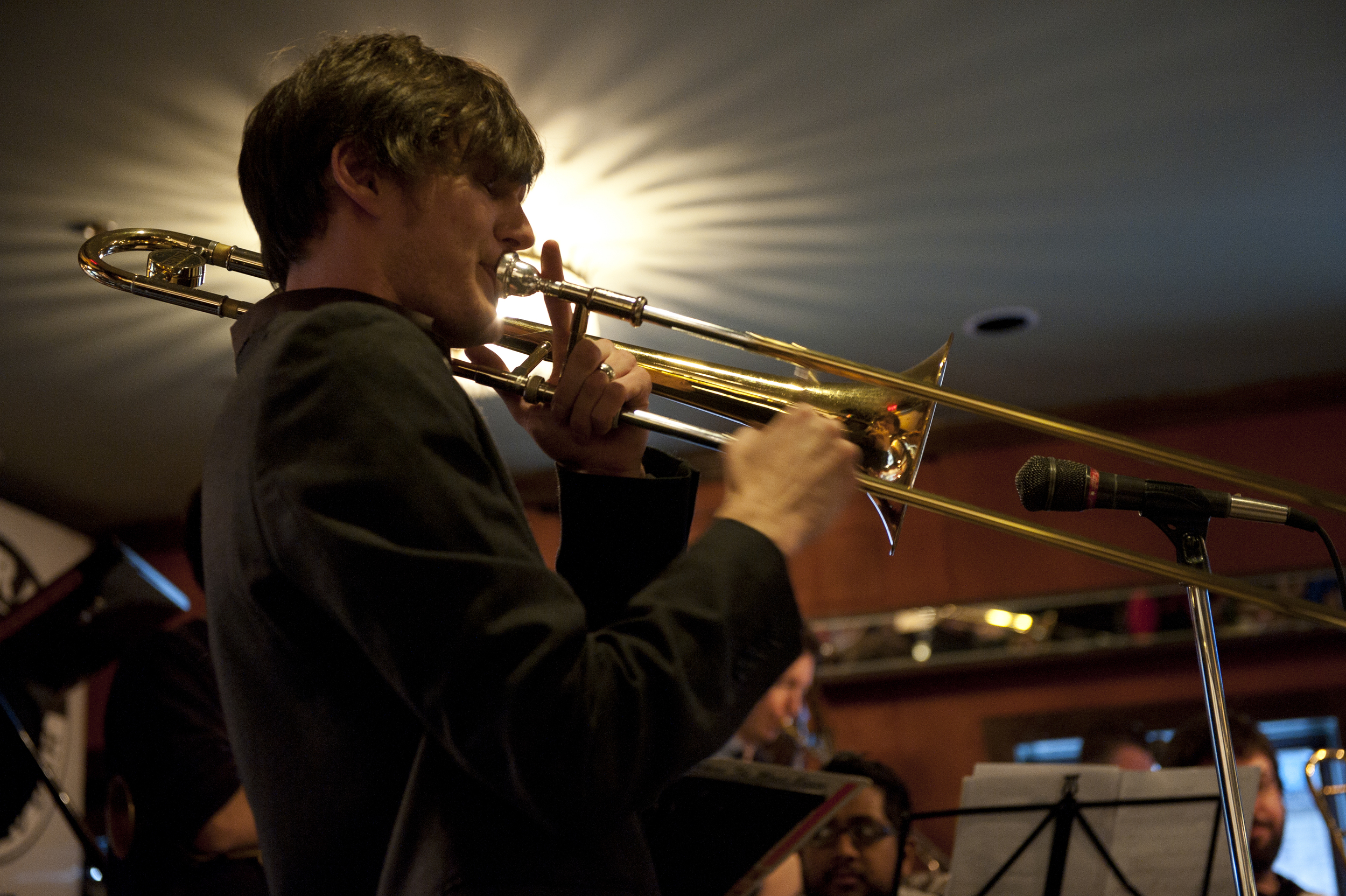 “The compositions on The Test,” Overton speculates, “come from a few different inspirations, from my life as a new father to images from dreams to a strong feeling of trying to prove my abilities to myself. The album definitely has a sense of urgency, trying to introduce my artistic voice to the world for the first time.”
“The compositions on The Test,” Overton speculates, “come from a few different inspirations, from my life as a new father to images from dreams to a strong feeling of trying to prove my abilities to myself. The album definitely has a sense of urgency, trying to introduce my artistic voice to the world for the first time.”
“I hope the breadth of the compositions and improvisations,” he considers, “show the audience a representation of where I was as an artist at the time of recording. I’m still very proud of that record even though it’s been out for a few years now.”
A prominent quality about improvised music is it never loses its luster or zeal over the years. Scores from their first outing possess that trait. The track “Chasing Ghosts” resonates with such permanence as he summarizes about the piece, “‘Chasing Ghosts’ is about following in the footsteps of the giants of jazz, many of whom are no longer with us. The arrangement is probably the simplest on the record because I wanted to really focus on the solos.”
He explains about the arrangement, “The band layers in off the top. The form of most of the tune is a basic vamp that’s easy to stretch out on, with a smaller bridge section in each chorus that’s a bit darker and more complex, which then opens back up into the free-wheeling vamp section again. The ending also is quite simple with a short retard, and a surprise short note at the end, rather than a huge long bang like you’d expect after a burning tune.”
Audiences will discern that the giants of jazz had a profound effect on Overton’s songwriting, inspiring him to pursue writing his own original material. He establishes, “I’ve always enjoyed writing my own material throughout my musical development. As my skills grew through my studies in school, the pallet I could use to write with became more varied and fun.”
Overton provides, “John MacLeod encouraged me to start my own groups to have an outlet to continue to develop my composition skills. When you’re bringing in your own arrangements, you need to be able to explain what’s going on to the musicians. This forces you into a leadership role, which I have grown to get more comfortable with over the years.”
Taking hold of the reins in a collaborative collective is a natural role for Overton. In addition to leading his quintet, Overton also leads the Composers Collective Big Band. When discussing the difference between leading his quintet compared to working with the larger group in the Composers Collective Big Band, he regards, “My quintet is very much focused on my own ideas compositionally while being a vehicle for improvisation and showcasing my voice on the trombone.”
“The Composers Collective Big Band,” he recounts, “started as a weekly writers workshop where other writers and I could bring in new works and try them out. Over the years, we started rehearsing less but gigging more and featuring only local composers and arrangers. The band is much less about my own voice and more about showcasing other great composers and, of course, the fantastic musicians in the band.”
“I think of the Composers Collective,” he characterizes, “as a musical mad scientist’s lab where we experiment and discover new things together, hopefully without anything blowing up!” he remarks playfully.
“Having my own groups,” he surmises, “and making records has always been the goal for me as an artist ever since I heard JJ Johnson and John Coltrane records as a youth. I’m not sure I was necessarily prepared! I kind of threw myself into it and learned along the way.”
His aptitude to learn his skill along the way also helped him when performing at live shows, affording him to be flexible when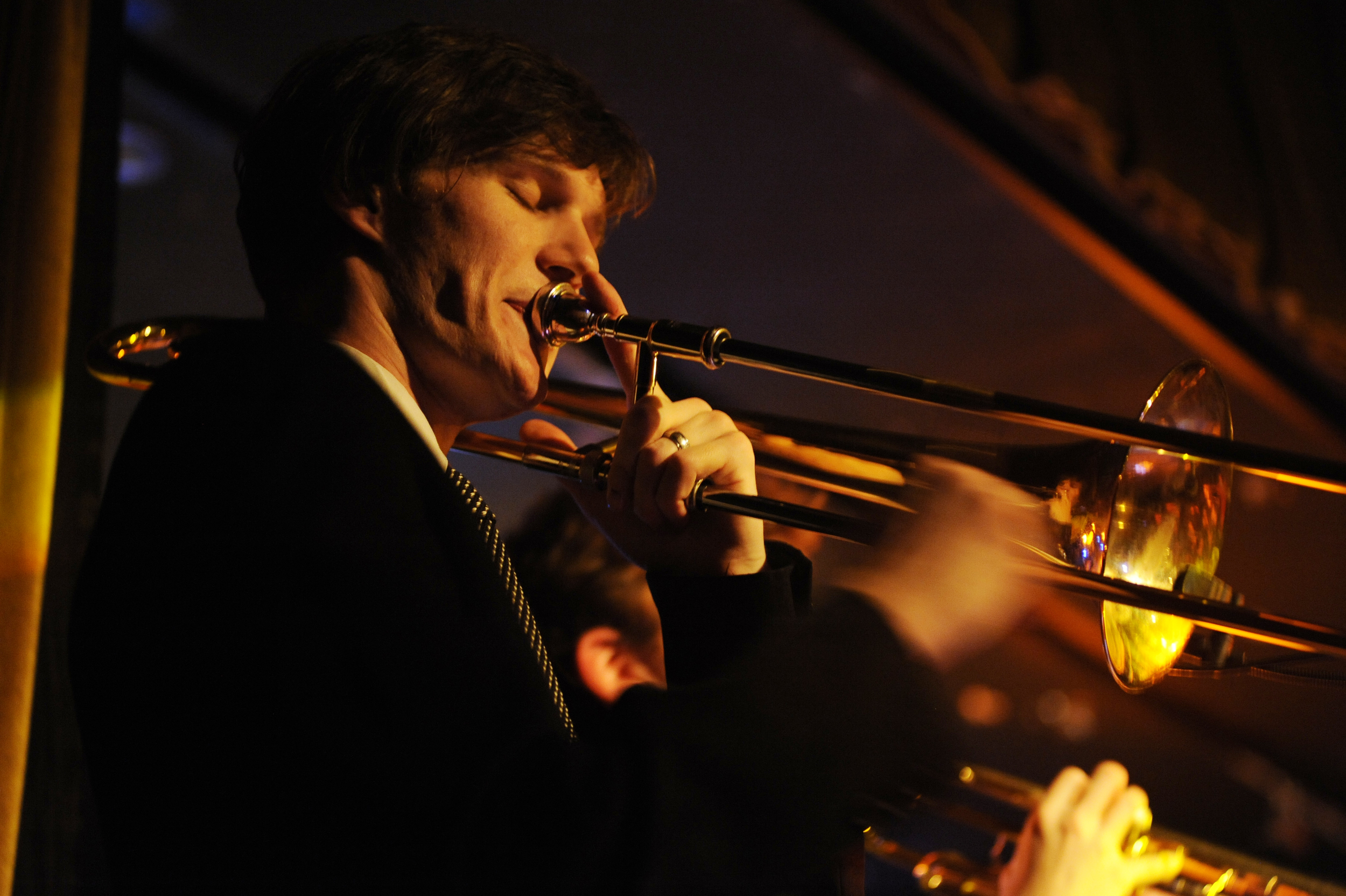 playing off of other musicians’ input. “Other than the obvious setlist, set list preparation and personal practice,” he proclaims, “I don’t have a specific routine when it comes to performing live. I’ve been fortunate to have had a lot of opportunities to play regularly, so thankfully, any nervousness or apprehension is a thing of the past.”
playing off of other musicians’ input. “Other than the obvious setlist, set list preparation and personal practice,” he proclaims, “I don’t have a specific routine when it comes to performing live. I’ve been fortunate to have had a lot of opportunities to play regularly, so thankfully, any nervousness or apprehension is a thing of the past.”
“That being said,” he elaborates, “I have the highest respect for other musicians’ time, so I try to be on point organizationally and make my charts as clear as possible.”
“My best memories of live performance,” he muses, “is near the end of a tour or run of gigs when everyone is so locked in with everyone else that the group seems to be flowing through the music as one unit. That depth of non-verbal communication is really something special to witness live and even more special to be a part of as a player. It’s almost like an out-of-body experience where you’re more aware of the music than of yourself.”
“I think,” he opines, “after the years of daily practice have added up, my fluidity on the horn has increased. Meaning it feels easier to get my ideas out. I also think with age and experience come more artistic maturity as well. My improvisations and compositions seem more calm and thought out than they used to be. It also doesn’t sound like I have as much to prove, perhaps.”
His relaxed approach to composing and playing music has granted him time to spend with his family as he reflects, “Being a father of two certainly fills up most of my non-music time. However, I bought an inflatable kayak over the course of the pandemic, which has been a really fun way for me to get some exercise and be out in nature. From my place, I can be at the Humber River or to Lake Ontario in minutes for a quick paddle and escape the city for a few hours. I’ve also taken advantage of the pandemic time to discover so many of the great ravines and green space the city has to offer.”
Another extracurricular pursuit in Overton’s life is devoting his time and efforts to the Clovertone Music Publishing. His publishing company is geared towards customizing music programs for classrooms that teach students about Canadian artists and their contributions. Its purpose is to connect contemporary musicians with an aspiring generation of musicians.
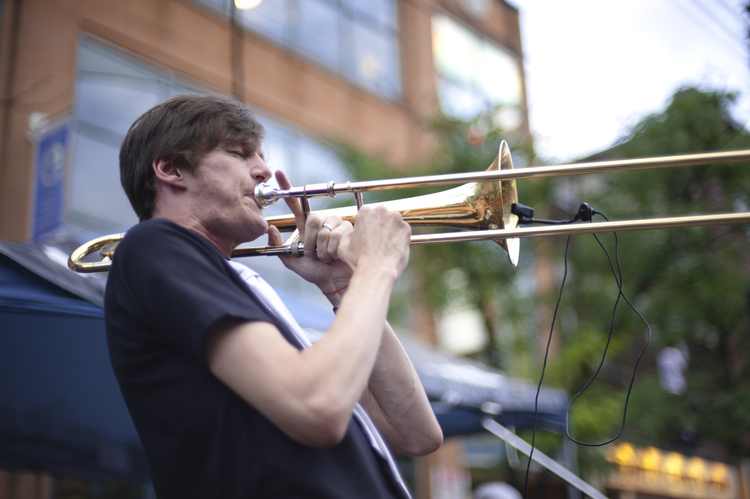 He makes the parallel, “Just like Canadian content is required on TV and Radio, many school band festivals are encouraging school bands to play material by Canadian composers. Not only to benefit the composers but also to show young musicians and teachers that we have great writers right here in Canada, some of whom started out in school band programs just like them.”
He makes the parallel, “Just like Canadian content is required on TV and Radio, many school band festivals are encouraging school bands to play material by Canadian composers. Not only to benefit the composers but also to show young musicians and teachers that we have great writers right here in Canada, some of whom started out in school band programs just like them.”
“I wanted to do my part,” he capitulates, “by publishing my works and other Canadian jazz compositions, and maybe inspire some young musicians to take an interest in the Canadian jazz scene.”
“The customization part of the business,” he imparts, “grew out the fact that many band programs are getting smaller. Meaning, they don’t often have full instrumentation to fill their ensembles. With Clovertone Music, we can adjust the charts to fit their ensemble size so they can pick anything in the library, and it will work with their band. This means greater access to charts no matter the size of their music program.”
Overton’s ambitious projects celebrate Canadian jazz, giving the model a stronger role in the world market. Music that had once been absorbed into other musical styles can stand on its own, pioneered by artists native to its culture.
The Christian Overton Quintet demonstrates to the world that Canadian artists too make their own original works that other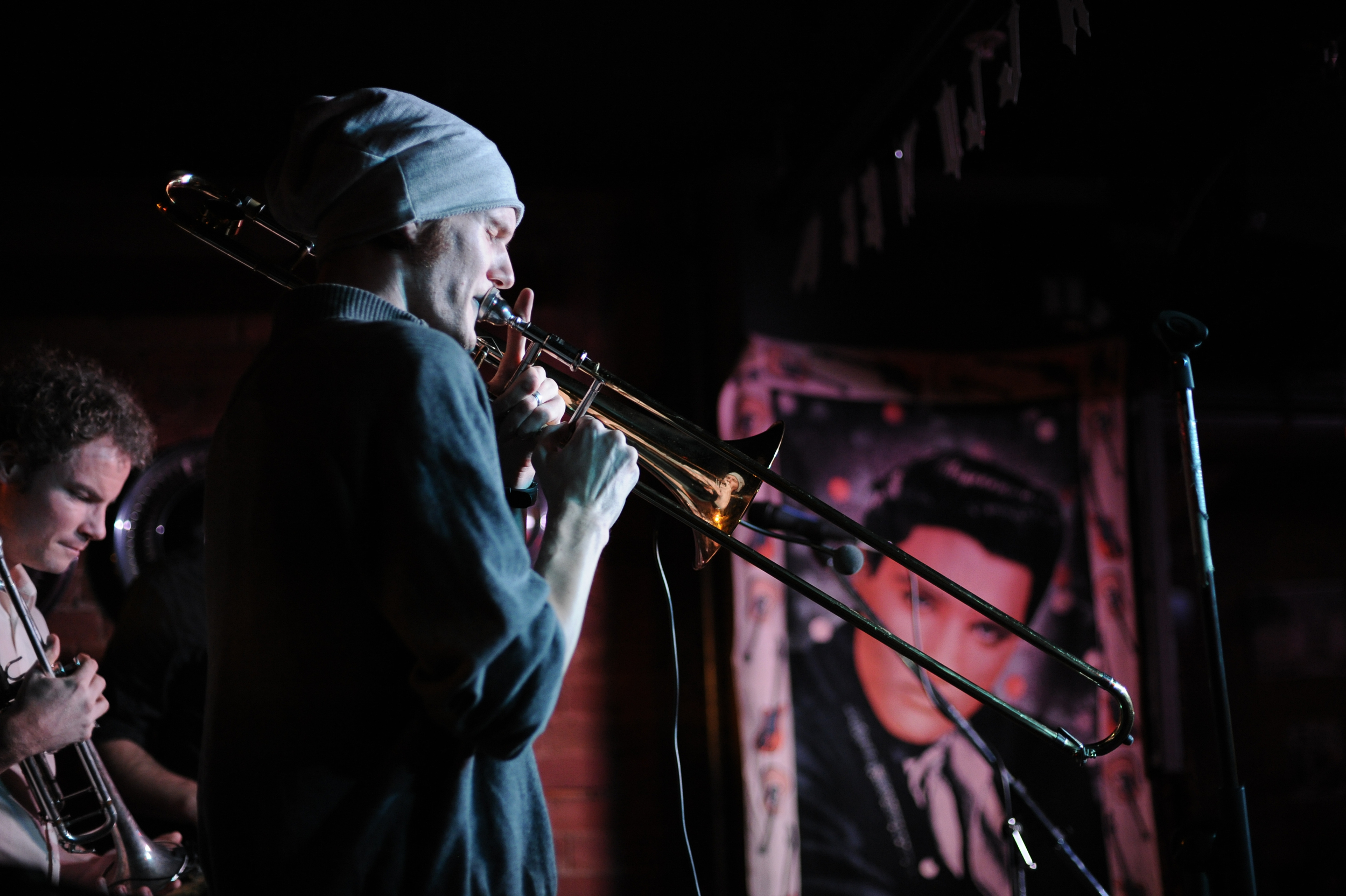 musicians can learn, perform, and admire. Overton shows it is not about proving that Canadian jazz exists, its about playing what comes naturally to Canadian artists. From the audience’s perspective, his endeavors have spearheaded new terrain for the collaborative collective setting, offering insiders and outsiders of Canadian communities something to discover and work into their own repertoire.
musicians can learn, perform, and admire. Overton shows it is not about proving that Canadian jazz exists, its about playing what comes naturally to Canadian artists. From the audience’s perspective, his endeavors have spearheaded new terrain for the collaborative collective setting, offering insiders and outsiders of Canadian communities something to discover and work into their own repertoire.
About Susan Frances:
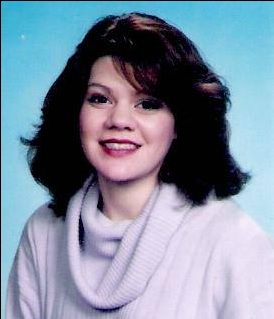 Born in Brooklyn, New York and raised in eastern Long Island, I always enjoyed writing and made several contributions to my high school literary magazine, The Lion’s Pen. Influenced by writers of epic novels including Colleen McCullough and James Clavell, I gravitated to creative writing. After graduating from New York University with a BA in Liberal Arts, I tried my hand at conventional jobs but always returned to creative writing. Since 1998, I have been a freelance writer and have over three thousand articles to various e-zines including: Jazz Times, Blogcritics, Yahoo Voices, Goodreads.com, Authors and Books (books.wiseto.com), TheReadingRoom.com, Amazon.com, Epinions.com, Fictiondb.com, LibraryThing.com, BTS emag, BarnesandNoble.com, RomanticHistoricalReviews.com, AReCafe.com, Hybrid Magazine, and BookDepository.com. In 2013 and 2014, I was a judge in the Orange Rose Writing Competition sponsored by the Orange County chapter of the Romance Writers of America located in Brea, California.
Born in Brooklyn, New York and raised in eastern Long Island, I always enjoyed writing and made several contributions to my high school literary magazine, The Lion’s Pen. Influenced by writers of epic novels including Colleen McCullough and James Clavell, I gravitated to creative writing. After graduating from New York University with a BA in Liberal Arts, I tried my hand at conventional jobs but always returned to creative writing. Since 1998, I have been a freelance writer and have over three thousand articles to various e-zines including: Jazz Times, Blogcritics, Yahoo Voices, Goodreads.com, Authors and Books (books.wiseto.com), TheReadingRoom.com, Amazon.com, Epinions.com, Fictiondb.com, LibraryThing.com, BTS emag, BarnesandNoble.com, RomanticHistoricalReviews.com, AReCafe.com, Hybrid Magazine, and BookDepository.com. In 2013 and 2014, I was a judge in the Orange Rose Writing Competition sponsored by the Orange County chapter of the Romance Writers of America located in Brea, California.


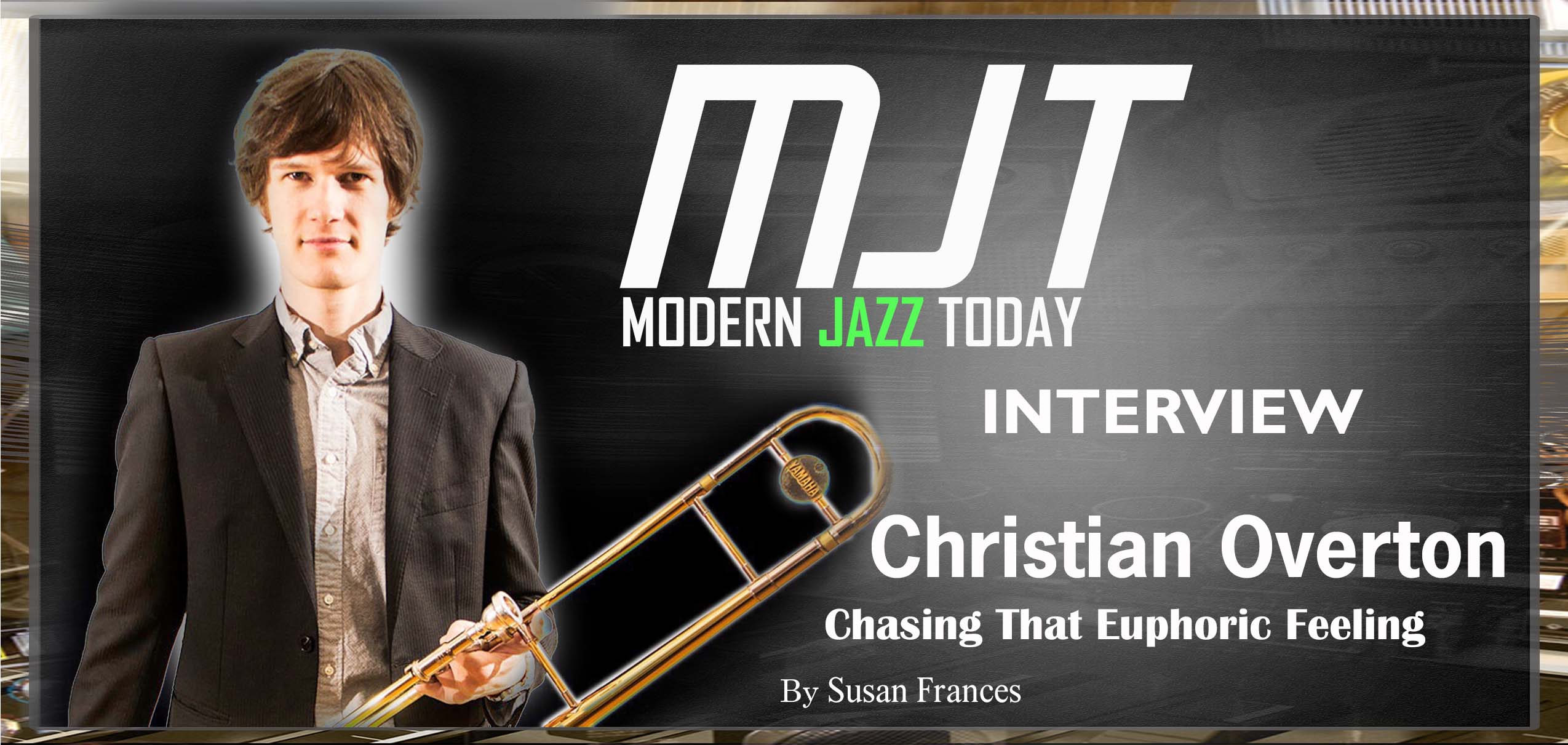


No Comments